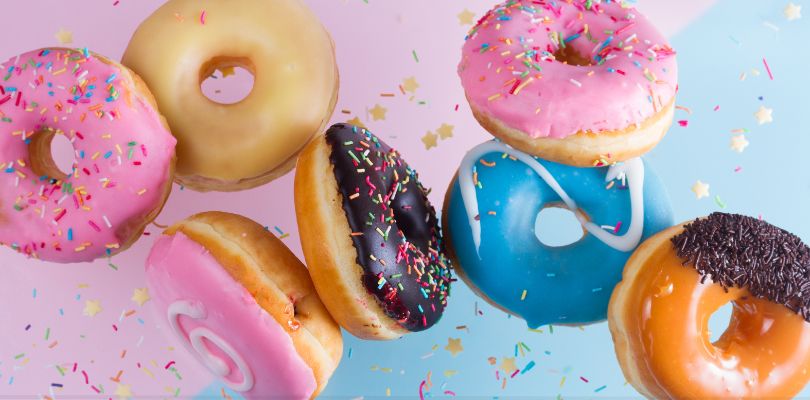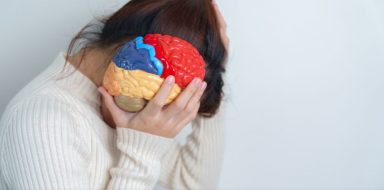Cutting Back on Sugary Snacks
Managing diabetes requires a good diet and medication. Stable blood sugar levels are key for preventing complications. Eating the wrong kinds of foods can lead to blood sugar spikes, weight gain and increased risk of heart disease, which can worsen diabetes symptoms.
1. Sugary Foods and Sweets
Sugary foods like candy, cookies, cakes and pastries are among the worst choices for diabetics. These foods are often loaded with added sugars and refined carbohydrates which cause quick spikes in blood sugar levels. Even sugar-free versions of these foods can be problematic because they still often contain high amounts of unhealthy fats or alternative sweeteners that can affect insulin sensitivity.
These foods provide little to no nutritional value, offering mostly sugar and unhealthy fats. Regular consumption can lead to weight gain, which increases insulin resistance, making it harder to control blood sugar.
2. White Bread, Rice and Pasta
Refined grains such as white bread, white rice and regular pasta are stripped of fiber and nutrients during processing. These refined carbohydrates are digested quickly, causing a fast increase in blood sugar levels. Whole grains are a better option because they contain fiber, which helps slow down the absorption of glucose and keeps blood sugar levels more stable. Foods low in fiber can lead to increased hunger and overeating, which can further complicate blood sugar control.
3. Fried Foods
Fried foods, especially those from fast-food restaurants, are loaded with unhealthy fats and calories. Foods like fried chicken, French fries and fried snacks are high in trans fats and saturated fats, which can lead to insulin resistance and increase the risk of heart disease—a common complication for people with diabetes.
Trans fats and saturated fats in fried foods can raise cholesterol levels and contribute to heart disease. They can also lead to weight gain, and take longer to digest, causing delayed spikes in blood sugar levels.
This article will explore some brain tumor treatments, looking at 7 great options. Read on to learn more here.
4. Sugary Cereals
Breakfast cereals, particularly the sugary and flavored varieties, can be surprisingly harmful for diabetics. Many cereals marketed as "healthy" or "whole grain" can still contain large amounts of added sugars. Even a small serving can raise blood sugar levels significantly. Instead, opt for high-fiber, low-sugar cereals like oatmeal or bran-based cereals, which have a slower impact on blood sugar.
5. Full-Fat Dairy Products
Dairy products such as full-fat milk, cream, butter and cheese are high in saturated fats, which can contribute to insulin resistance and increase the risk of heart disease. While low-fat dairy options may be better for diabetics, it’s essential to choose versions that don’t have added sugars, which can be common in flavored yogurts or dairy-based snacks.
Regular consumption of high-fat dairy can lead to weight gain, complicating diabetes management. Some dairy products, especially flavored ones, contain added sugars that can lead to blood sugar spikes.
6. Sweetened Beverages
While beverages aren’t technically food, they play a major role in managing diabetes. Sweetened beverages, like regular soda, sweetened tea, fruit juices and energy drinks, are packed with sugar and empty calories. These drinks cause quick spikes in blood sugar levels and offer no nutritional value. Even fruit juices that seem healthy can have high concentrations of sugar and should be limited.
Sweetened beverages can contain more sugar than you realize, leading to sharp blood sugar increases. These drinks offer no fiber or nutritional benefits and contribute to weight gain. Drinking sugary beverages can lead to dehydration, which can make it harder for the body to control blood sugar levels.
7. Processed Snack Foods
Packaged snack foods like chips, crackers and pretzels are usually made from refined carbohydrates and contain added sugars, salts and unhealthy fats. These snacks provide little nutritional value and are often high in calories, making them harmful for both blood sugar control and overall health.
Processed snack foods are typically made with white flour, which causes blood sugar to rise quickly. Many of these snacks are fried or contain trans fats and are loaded with salt, which can increase the risk of heart disease.
8. Baked Goods
Baked goods like cakes, pastries, muffins and doughnuts are usually made with white flour and packed with sugar. They also often contain unhealthy fats, making them a triple threat for diabetics. These foods lead to blood sugar spikes, contribute to weight gain, and increase the risk of heart disease.
Refined flour digests quickly, leading to rapid absorption of glucose. Many baked goods contain trans fats or saturated fats, which can contribute to insulin resistance and heart disease.
9. Flavored Yogurt
While yogurt is generally considered a healthy food, flavored varieties often contain large amounts of added sugar. Even small containers of fruit-flavored or sweetened yogurts can pack in more sugar than a candy bar, making them a poor choice for diabetics.
Some flavored yogurts are marketed as healthy despite their high sugar content. Instead, opt for plain Greek yogurt and add fresh fruit for a healthier, lower-sugar alternative.
10. Dried Fruits
While fruits are generally considered healthy, dried fruits can be problematic for diabetics. Dried fruits like raisins, apricots and dates are concentrated sources of sugar because the water content is removed during the drying process, making the natural sugars more concentrated. Even a small serving of dried fruit can significantly raise blood sugar levels.
It's easy to consume more dried fruit than intended because it’s less filling than fresh fruit, making it harder to control blood sugar. Instead, go for fresh, whole fruits like berries, which are lower in sugar and contain more water and fiber, helping to regulate blood sugar.







